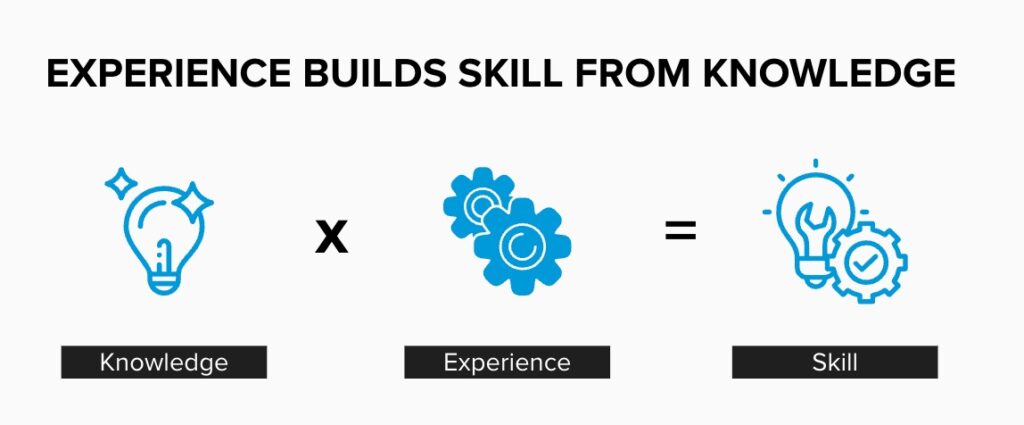Hiring well can be 90% of the battle of management success. But traditional interviews often fail to accurately assess the most important factor: whether a candidate can truly perform the job. My perspective on interviewing challenges the conventional wisdom, suggesting a shift towards practical auditions over abstract questions.
Why Interviewing is Often Ineffective
Interviewing skills vs job skills. One of the biggest challenges is that interview performance rarely correlates with on-the-job performance. Interviewing requires a different set of skills, and candidates who excel in interviews may falter on the job.
Emotional reactions to candidates. Most interviewers are unknowingly looking for themselves in a candidate. Thus do not select people who do not look like and sound like us. In the search for someone with skills that match ours, we may fall into the Like Me Trap of conflating a candidate’s similarity to us physically with a similarity of skills.
Another problem is a fear of competence. Managers will sometimes pass on candidates that intimidate or scare them. When we meet a candidate we judge to be superior to ourselves, we pass on them for someone less threatening.
The Purpose of Interviewing
Most managers view interviews as a process of elimination, looking for reasons not to hire candidates. However, I believe this approach misses the point. Instead, interviews should be an opportunity for candidates to demonstrate their skills in action—essentially, an audition for the job.
The Experience Downfall
I spent many years involved in traditional Japanese martial arts. During my time, I observed that long years of experience do not necessarily lead to skill. Dojos are filled with people who have long years of experience and low skills. There are also many people who have few years of experience and incredible skills. The correlation between experience and skill is not linear.
Rule: Doing something badly over and over again for many years does not make you a master, and I think I may have figured out why.

When data is organized and made sense of, it becomes information. When information is learned and understood, it becomes knowledge. This is well-known and has been written about many times. But what I think follows it is the process through which people take the knowledge they have and turn it into skill through experience.
If we think of experience as a function box where the input of knowledge is tested in the real-world for the purpose of adaptive learning, then skill is the output. This means skill is the ability to apply knowledge.
There are many reasons why people would have considerable low skills despite long years of experience:
- Physical limitation on physical performance
- Low knowledge input
- Experience is irrelevant to the skill
- Experience with few tests that provide opportunities for negative feedback
- Experience where negative feedback results in changing environments rather than adapting to feedback
There are also scenarios in which people would have high skills with few years of experience:
- High knowledge input
- Exposure to high levels of adversity and testing resulting in large amounts of feedback and adaptation coupled with a passionate perseverance despite difficulties.
- Natural talent
Because of this, during interviews, I do not spend a lot of time probing for experience. Probing for experience is searching for a process. The process is not very interesting to me. Experience alone is not a reliable indicator of skill. I’ve observed this firsthand in traditional martial arts, where years of training often do not correlate with mastery. Similarly, in the workplace, experience doing things badly for many years is not interesting to me in a candidate. I want to know what you can do.
Candidates Should Audition
To truly assess a candidate’s abilities, the best approach is to create a practical audition. For example, have a programmer debug a real piece of code, or ask a project manager to create a budget for a mock project. Auditions not only reveal skills but also give insight into how candidates work under pressure.
The best interviews are auditions conducted by casting in the entertainment industry. A typical audition for an actor begins with a scheduled time slot, where the actor arrives at a casting location, usually a theater or studio. Upon arrival, the actor may need to sign in and provide a headshot and résumé to the casting team. The audition often starts with a brief introduction, during which the actor states their name and the role they’re auditioning for. Following this, the actor performs a monologue or scene, either prepared in advance or provided as a “cold read” on the spot. In a cold read, the actor is given a script just before the audition and is expected to quickly grasp the character and perform the lines. A casting director or team member reads opposite the actor, playing the other characters in the scene. The focus is on how well the actor embodies the role, delivers lines, and adapts to any direction they may receive during the audition. Afterward, they may be asked to perform again with adjustments or interact with other actors for chemistry tests. The process is often quick and requires the actor to make a strong impression in a short amount of time.
Therefore, when interviewing, create auditions:
- Plumbers are given some supplies and asked to construct water delivery and drains.
- Electricians unscramble a messed up set of wires behind a wall or install electrical supply by expanding the breaker box and stringing wire with outlets.
- Programmers debug code you give them and solve a problem by creating code while they are watched.
- Writers submit a sample of their writing or write something short on-demand
- Artists have a portfolio of drawings and designs.
- Sales people are given a product and asked to sell it.
Come equipped with things for the candidate to do, and warn them if they are going to need tools, props, a laptop, or their portfolio. Ask the candidate about their knowledge, and then ask them to do something that allows them to demonstrate some abilities that you expect them to have on the job. Create a situation where they must do their job and show that they can.
Don’t forget to interview for skills that are not the primary skill of the job. Ask questions or create opportunity to audition skills such as collaboration, giving feedback, holding one on ones, reporting bad news to executives, and other tertiary skills you will wish that the candidate had in addition to their technical ability. Sometimes it can even be interesting to start a debate with a candidate to see how they handle disagreement.
While personality tests and behavioral interviews have their place, they often fail to measure actual job performance. Asking candidates to recount past experiences or complete puzzles can be helpful, but they don’t provide as clear a picture as having them perform tasks related to the job.
In the end, the best way to assess whether a candidate can perform the job you’re hiring for is simple: have them do it. By moving away from abstract questions and focusing on practical auditions, you can make smarter, more informed hiring decisions.


